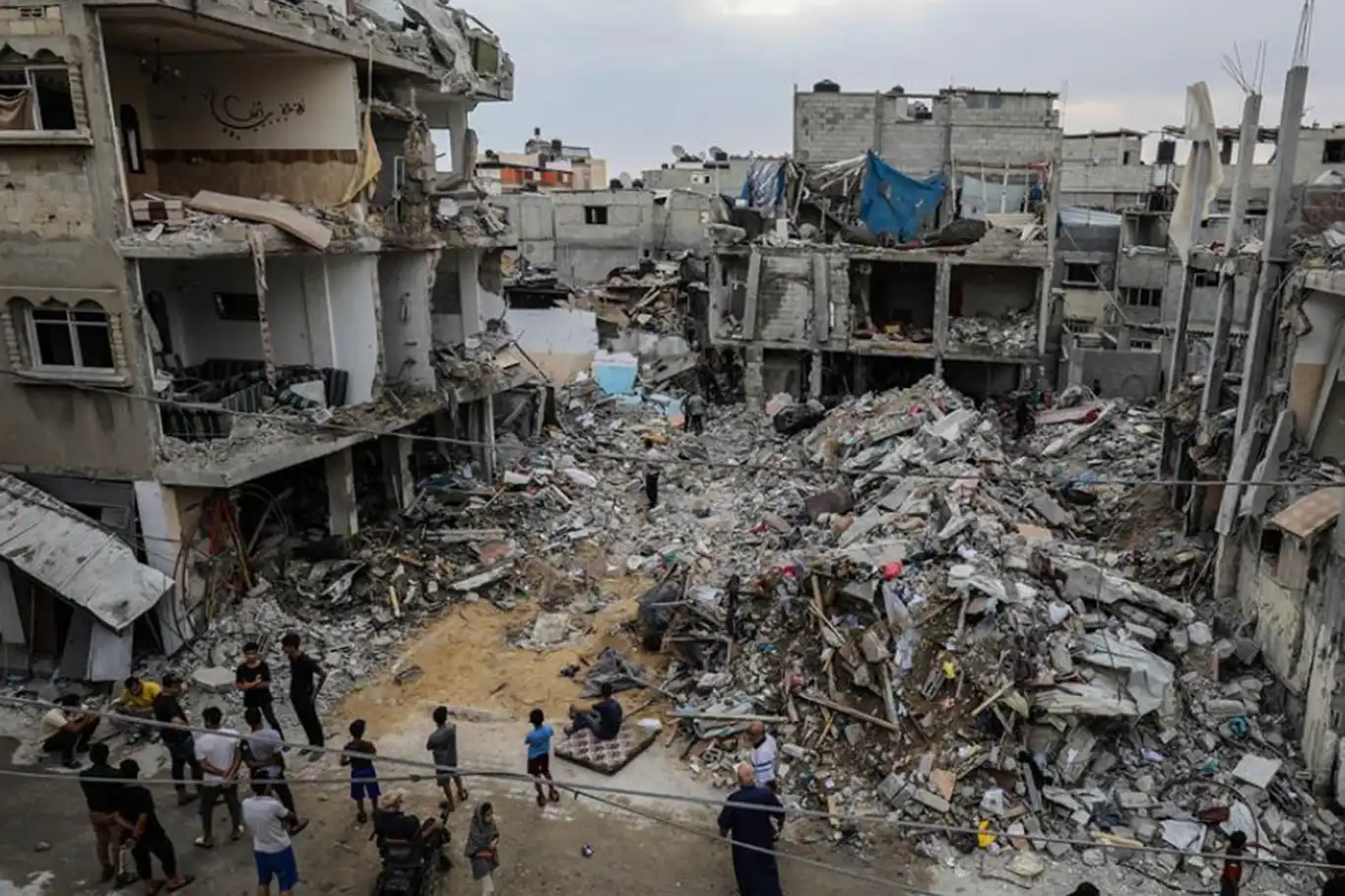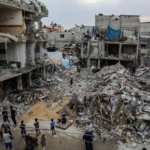It has been 10 harrowing months since Israel launched its relentless war on Gaza. Since October, I have found myself compulsively checking for updates on the situation in Palestine. Thanks to Al-Jazeera and a handful of Global South media outlets, the world has managed to stay up-to-date about the ongoing devastation in the Gaza Strip, despite concerted efforts by Israel and its Western allies to suppress the truth. Independent foreign journalists have been denied access, and social media platforms have been pressured to remove content from citizen journalists and independent creators. Local journalists, who remain the only credible source of news from Gaza, are being systematically targeted. Over the past 10 months, more than 166 journalists have been killed—a record-high casualty rate for the press.
In this same period, Israeli bombardments have claimed the lives of nearly 40,000 Palestinians, 70 per cent of whom—around 28,000—were women and children. Among the dead are 205 United Nations (UN) workers and hundreds of Palestinian doctors and nurses. The UN reports that 1.9 million of Gaza’s 2.3 million residents have been displaced, with nowhere safe to go, as 80 per cent of the Strip’s infrastructure, including hospitals and schools, has been destroyed. The World Health Organisation has recorded 1.8 million new cases of infectious diseases.
While statistics convey the scale of the catastrophe, they cannot fully capture its human dimension. This became starkly clear to me during a recent trip to Saudi Arabia, where I had the chance to meet one of the survivors. On a Flyadeal flight from Riyadh to Madinah, a young Arab woman asked to take the window seat beside my wife and me. In typical fashion, she quickly struck up a conversation with my wife even before we took off. Hanah (not her real name) was travelling from Egypt while we were en route from London, having stopped in Riyadh for a conference before heading to Madinah and Makkah for Umrah (lesser Hajj).
Knowing my deep interest in the Palestinian struggle, my wife immediately alerted me when she learned that Hanah was from Gaza. Hanah had spent her entire life in Gaza City. A Business Administration graduate and mother of three, she used to work for a Middle Eastern company with a branch in the Palestinian territory. Though under occupation, life was bearable for her and her husband, who also worked in the city—until the war began.
- Tinubu Commissions CNG Buses At Presidential Villa
- OPEC says Chinese economy pulling down oil demand
Hanah’s home was destroyed in an overnight Israeli airstrike. Fortunately, she and her family had already evacuated to a nearby UN-run school. Hanah, her children, and her mother managed to secure permits to cross into Egypt, but her husband remained in Gaza, as able-bodied men were not allowed to leave.
Though she was grateful to have escaped with her children and mother, Hanah spoke of the agony of being separated from her husband and other relatives still trapped in Gaza. “My children ask for their father every day, and I haven’t known peace since leaving home,” she told me. While in Egypt, Hanah continued to work, using her earnings to support her family and hoping her husband would survive the war so they could reunite. She decided to perform Umrah to pray for her family and seek divine intervention for her fellow Palestinians.
Despite the horror she has endured, Hanah’s story could be seen as one of the more fortunate ones. At least she and her children are alive, unlike the 16,000 others who have been massacred in the last 10 months. During our time together in Madinah and Makkah, Hanah remained courageous and composed, though she admitted that the trauma of the war cast a shadow over every aspect of her life. She also lamented the lack of support and empathy from her fellow Arabs, particularly in Egypt, where her children face stigmatisation. This has led her to consider relocating to a European country where she has relatives in exile.
Her story personally touched me, and I always remember her and pray for the war to end and for her husband to survive so that he could one day reunite with his family.
Meanwhile, the genocide in Gaza continues unabated, with Israel showing no signs of restraint. The August 9 massacre, in which over 100 people were killed during morning prayers at a school, was among the worst atrocities in this 10-month-old war. This was just one of four attacks on schools this month alone. Unsurprisingly, the latest assault came mere hours after the United States—Israel’s primary political and military backer—announced an additional $3.5 billion in military aid to the Israel Defence Forces.
For those hoping for US intervention to end the war, this latest move should serve as a stark reminder of America’s true intentions: to facilitate a second Nakba. The scale of the devastation is unimaginable. “A new vocabulary is needed to describe it,” said Dr James Smith, a UK-based humanitarian worker who returned from Gaza in June.
Naziru could be reached at [email protected]

 Join Daily Trust WhatsApp Community For Quick Access To News and Happenings Around You.
Join Daily Trust WhatsApp Community For Quick Access To News and Happenings Around You.


